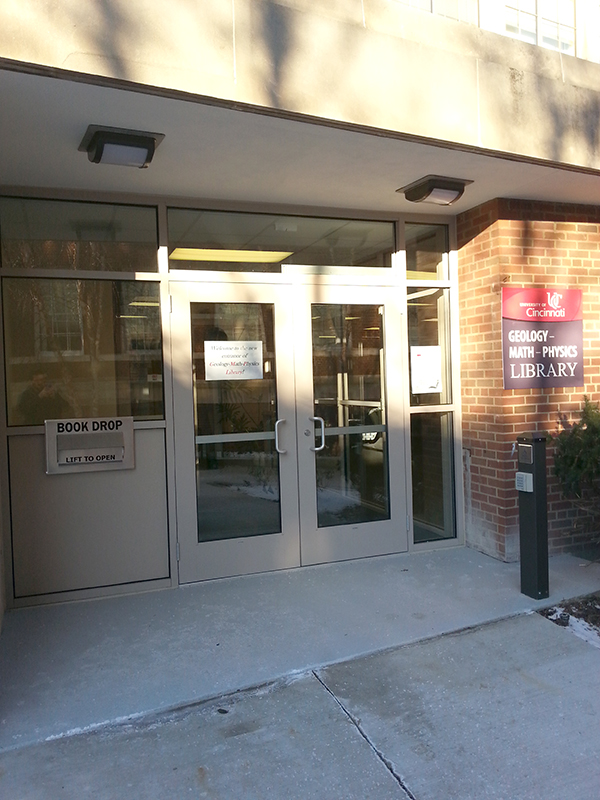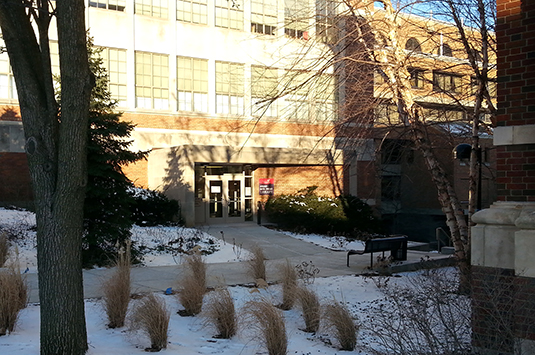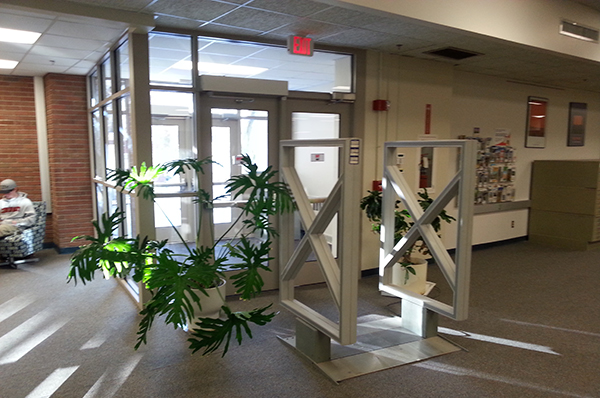The final day of LOVE YOUR DATA week and it all comes together. Well documented and organized data kept safe and shared with researchers continue the scientific conversations. A brilliant example of this is the Human Genome Project. This 13-year project funded by public and private efforts opened access to genetic data that led to the discovery of 1800 disease genes and over 2000 tests for human conditions. Countless research projects can get off the ground because their time and resources can focus on next steps instead of reinventing the already sequenced wheel. What is really going on is DATA REUSE.
Category Archives: GMP Library
LOVE YOUR DATA Day 4 – Data Shhharing
Post by Tiffany Grant PhD, Research Informationist based at Donald C. Harrison Health Sciences Library
Data Shhharing
“Data” and “sharing” are two words that we don’t like to juxtapose in the scientific community. I mean, who wants to share their hard earned data? It’s the equivalent of sharing ones salary with the world- a group of strangers. The data generated via the scientific process is extremely personal, and is intrinsic to the life and legacy of the researchers who create it. Researchers don’t have a problem with publishing their work once completed, as it adds to their scientific credibility. But, therein lies the problem. Publication does not always equal access.
It is the publisher, not the researcher who owns the rights to the articles published in their journals. Access to these journals typically only comes through a paid subscription. So, while researchers can often get access to journals through their institution, access is not granted to all without paying for individual articles at a time, a process which can prove quite costly. Thus paying for access to online content makes sense only to publishers who profit from it. But, as a researcher, do you really want your hard work under this veil? Is that really what you worked for?
LOVE YOUR DATA Day 3 – Data Documentation
I say to you….slow down, smell the agar plates, take the time to document your data. Your future self will thank you, profusely.
Proper documentation provides the context that your data needs to persist through time, to integrate into new systems and to give you credit for your contributions in the form of data citations. Where possible, you should consider contributing the following information along with your dataset.
Love Your Data Week Feb 8-12
Join us for LOVE YOUR DATA WEEK February 8 – 12 2016. This week long social media event will celebrate your biggest research asset – your data. Each day will highlight tips and resources around a specific theme.
Monday: Keeping Data Safe
Tuesday: Organizing Data
Wednesday: Documenting Data
Thursday: Data Sharing – Data Citations
Friday: Open Data – Reusing Data
Website: https://loveyourdata.wordpress.com/
Twitter: #LYD16
Instagram: #LYD16
Facebook: #LYD16
Pinterest: https://www.pinterest.com/coateshl/love-your-data-2016/
https://www.pinterest.com/coateshl/the-changing-face-of-data/
Open Science Framework Webinar
OSF 101 Webinar
The Open Science Framework is a free, open source web application created by the Center for Open Science built to help researchers manage their workflows. The OSF is part collaboration tool, part version control software, and part data archive.
Learn how to make the most of your free OSF account by participating in our upcoming webinar. Make managing your research easier with these features:
- Centralized file storage to organize all of your materials in one place
- Collaboration space to keep coworkers on the same page
- Fine-grained privacy controls to manage public and private workflows
- Built-in version control to maintain access to file history
- Add-on connections to the tools you already use to streamline your workflow
Wednesday, February 3, 2016 – 11a -12p EST
Click here for details and to register.
To learn more about the Center for Open Science, visit their website: https://cos.io/
Welcome to the New Entrance to the Geology-Mathematics-Physics Library
When users of the Geology-Mathematics-Physics Library returned to campus for spring semester, they were greeted with a new entrance to the library. The more accessible and visible entrance is located on the exterior of Braunstein Hall across from the Old Chemistry Building and visible from the quad. It includes a book drop as well as a lounge space adjacent to the new entrance.
Over the next six months there are plans to improve the library’s upper level. First, the service desk and reserves will move across the room to be adjacent to the external entrance. In addition, more lounge and group collaboration spaces will be created, as well as a computing space to support GIS needs.
The new entrance will allow many people to discover, or re-discover, this library, and to make use of its resources.
Mendeley Guide & Workshops
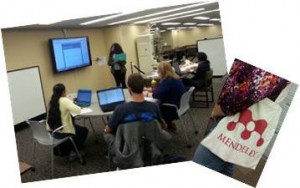 In the Fall, the Chem-Bio Library held two Mendeley workshop in the Chem-Bio Library’s Collaborative Zone (503 Rieveschl Hall) , making use of the library’s new wireless displays. The workshop covered: Mendeley installation, inputting & organizing citations, generating citations & bibliographies, installing citation styles, and creating groups and sharing references.
In the Fall, the Chem-Bio Library held two Mendeley workshop in the Chem-Bio Library’s Collaborative Zone (503 Rieveschl Hall) , making use of the library’s new wireless displays. The workshop covered: Mendeley installation, inputting & organizing citations, generating citations & bibliographies, installing citation styles, and creating groups and sharing references.
Check out the library’s Mendeley guide to get more information on Mendeley and the workshop’s materials: http://guides.libraries.uc.edu/Citation-Tools/Mendeley
Future Workshop Topics for Graduate Students
What are some workshops topics that you would like the Chem-Bio Library to consider developing for the future? These could include information tools, resources/software offered in the library, data management, electronic notebooks, and possibly other information & technology topics.
Let us know at the below survey!
11/13: UC Libraries & IT@UC Host Ohio Supercomputer Center workshops

UC Libraries and IT@UC Research and Development are pleased to present a 1-hour workshop that will provide an introduction on the Ohio Supercomputer Center (OSC) resources and how to use them.
The workshop will be offered Friday, Nov. 13, on both UC’s East and West campuses, at the following times and locations:
- 10:30-11:30 a.m., Health Sciences Library, East Campus
- 1:30-2:30 p.m., Langsam Library, Room 475, West Campus
Topics include:
- What is OSC?
- How can OSC help you?
- High Performance Computing (HPC) concepts
- Introduction to OSC’s HPC services
- How to get access
- Governance; how you can participate
- Environment (operating system, connection methods, etc.)
- Introduction to non-interactive computing
- Data storage services
- Scientific applications
This workshop is open to anyone who might be interested in learning about OSC resources. To register for a workshop, visit www.osc.edu/nov13 .
Contact Jane E. Combs, IT@UC Research & Development director, at combsje@ucmail.uc.edu with questions.
Managing Research Data from Generation to Preservation
Join the University of Cincinnati Libraries for a workshop on data management planning. This interactive and hands-on workshop will address universal data management best practices. While much of the focus is on STEM fields, this course will be useful for anyone interested in learning more about data management practices and principles. The workshop will be held in the Engineering Library in 850D Baldwin on Tuesday, November 17, 2015.
Register for the workshop at http://webcentral.uc.edu/hslclass/home.aspx
Managing Data from Generation to Preservation
This 3 hour activities based workshop will examine data management principles for the various phases of data. Participants will create a data set and apply principles covering topics such as types and formats of data, file naming conventions, Readme files, metadata, backup and archiving data using UC resources, roles and responsibilities regarding data and university and national data policies.
Tuesday, November 17, 2015 – 850D Baldwin
Contact Kristen Burgess, Assistant Director for Research and Informatics, Health Sciences Library with any questions.
Celebrate GIS Day November 18th
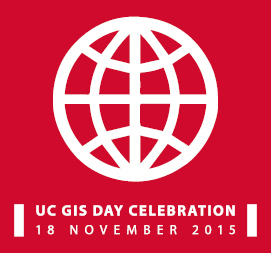 The Geography Graduate Student Organization, Department of Geography in the McMicken College of Arts and Sciences, UC Libraries and IT@UC together will celebrate UC GIS Day on Wednesday, November 18 with a lecture by Dr. Alan T. Murray. All are welcome.
The Geography Graduate Student Organization, Department of Geography in the McMicken College of Arts and Sciences, UC Libraries and IT@UC together will celebrate UC GIS Day on Wednesday, November 18 with a lecture by Dr. Alan T. Murray. All are welcome.
Schedule
8-10 am: Morning Coffee Meet and Greet with Dr. Murray in Braunstein Hall, 4th floor open air lounge next to the graduate student office
2-3 pm: Lecture – Applying GIS to Contemporary Issues – 417 TUC
10am-5pm: GIS equipment display will on the TUC Plaza or TUC steps
weather permitting
Dr. Murray is a professor in College of Computing and Informatics and a professor in the School of Public Health at Drexel University. His research interests are in the areas of geographic information science, spatial analytics, location optimization, and health disparities (http://cci.drexel.edu/faculty/amurray/).

